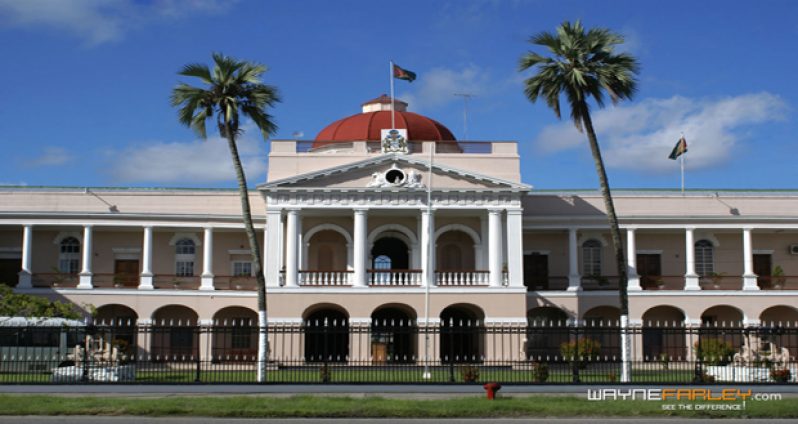IN the human experience peculiar to the Guianas, the emergence of culture sub-elite defined in the ‘Gramsican’ perspective, has been constrained as well as sustained by the struggle for Independence, Constitutional Rights and Intellectual Sovereignty.Both Alice Walker and Toni Morrison, as celebrated Afro-American authors, have used the novel to explore its evolution, as it pertains to the development of women, particularly Black women in the United States.
Lady Gaga, in one of her recent albums, actually discloses that in lyrical dynamic manifest in the sphere of the printed word when she intones that “some of us just like to read”.
That universality, however, is incomplete unless one reappraises the totality of settlement colony/communities within that environment, influenced in whatever shape or form by the Indigenous People (Jan Carew and Gordon Rohlehr).
The process at the Pan-Caribbean level has also been described most recently by the Trinidadian writer, Lakshmi Persaud when she delivered the acceptance address of an award extended to her by the St. Augustine UWI Graduates on October 25th 2013. (Stabroek News, December 30: The Beauty of Integrity and the and the Zeal to Learn).
The incrementalist model and vision
Gillian Thompson, who died in a most tragic and horrendous accident on Xmas Eve Day, could be described as a reform progressive.
The actual location of the accident involving a speeding car being pursued by traffic law enforcement (on North Road and Shiv Chandarpal Drive, formerly New Garden Street) used to be, in the era of the Plantocracy and the Court of Policy, the easternmost boundary of Joseph Bourda’s estate. North Road itself consisted of a canal that extended into those of East Street, Camp Street, as well as Main Street, all now transformed into roadways.
These service canals criss-crossed Georgetown, and flowed into waterways leading directly into either the Demerara River at Kingston, or directly into the Atlantic, via outlet facilities at Kitty, Vlissengen Road or Thomas Lands.
It is at times such as nowadays, when several city roads are virtually transformed into shallow waterways after showers of rainfall, that one is obliged to contemplate as to what kind of vision the ruling circles would have had for surface transportation in the mid to latter 19th Century, and up until say 1914 -1916.
Miss Thompson herself only earlier this month and during the latter part of November would have had to journey from her North Ruimveldt residence through sections of flooded streets before reaching the Church Street location of the National Library.
So, it is not the case that she and her driver had no experience of difficult and at times hazardous intersections such that which obtains at Church, North and Vlissengen Roads at the best of times.
The policymakers of the Georgetown City Council, who are responsible for the upkeep and maintenance of the entire Georgetown, certainly must share some of the culpability for the insecure state of inner-city surfaces whenever there are heavy rains, or even when rainfall is imminent.
The movement from one stage to the next, and how that impacts on traffic monitors (is the Guyana Police Service traffic department) is not a fundamental, but more of a degree, an attitude, if we like.
What is certain is that Miss Thompson would have been alive today, were it not for some irrational and possibly criminal breach involving a traffic police intervention.
So, when people are as glib as to conclude that accidents happen, this is not entirely untrue; but accidents such as those that resulted in the deaths of Princess Diana and her beau, Dodi, in a Paris tunnel, and that of last Xmas Eve that caused Miss Thompson’s death, require a deeper and much more profound scrutiny.
The measurement of loss
As head of National Library, Gillian Thompson assumed the position from Karen George sometime in 2004 as Chief Librarian Acting. As of January 1, 2006, she was appointed Chief Librarian, and over the ensuing years has strove to emulate others such as Miss Joan Christiani and Gwyneth Browman.
Privileged to have participated in a number of Library Association conferences in the Caribbean, she was also involved in exchanges with institutions such as UNESCO that programmes seminars that address Library and Archival concerns and requirements.
The development of the local library community takes a lead from the National Library, despite the different purposes these, such as that of the University of Guyana, the Geology and Mines Commission or the CARICOM Secretariat would have served.
As a service provider for local as well as a limited set of foreign students, the National Library gained meaningful publicity on the occasion of the 100th Anniversary during 2010. At the centre of this Centenary Observance was the staff, the Committee, as well as the Chief Librarian herself. She will always be remembered.
Written By Eddi Rodney



.jpg)









